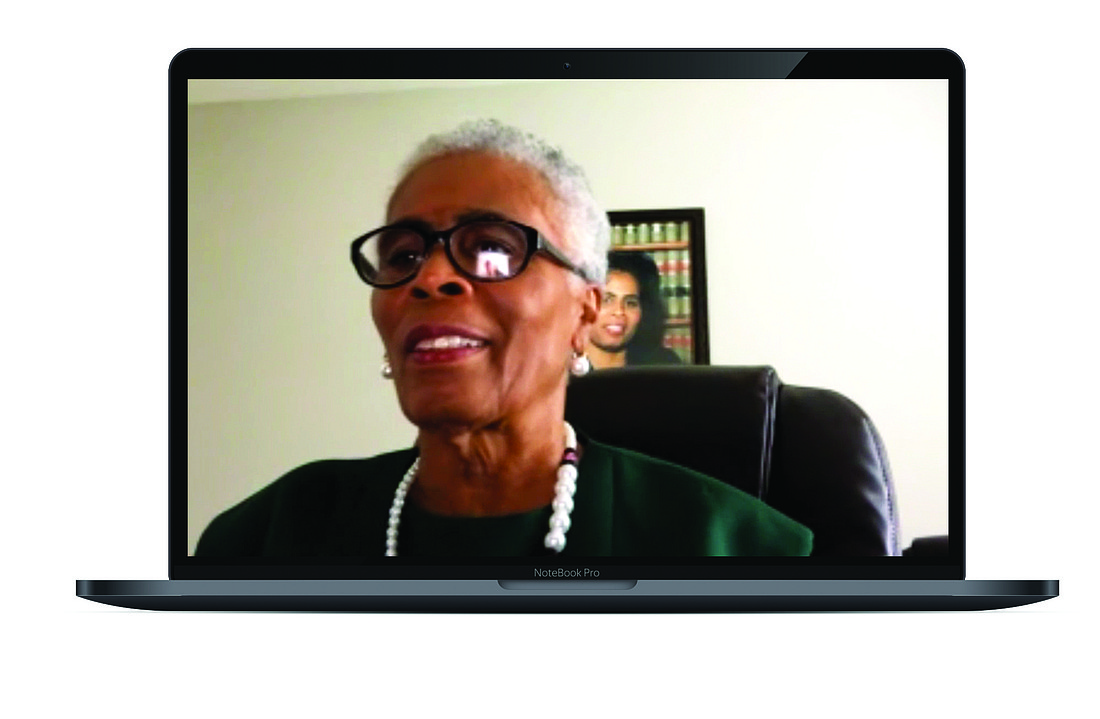
In her keynote address to the Jacksonville Bar Association at its annual Law Day meeting on May 6, retired state Supreme Court Justice Peggy Quince referenced the associations' dedication to maintaining its Law Day meeting tradition, despite having to convene virtually because of the COVID-10 pandemic.
“It could have been easy to cancel, but you thought it was important to have this meeting,” Quince said.
The theme for Law Day this year is “Your Vote, Your Voice, Our Democracy: The 19th Amendment at 100.”
It recognizes the 100th anniversary of the ratification in 1920 of the amendment to the U.S. Constitution that guarantees women the right to vote.
“It reminds us of the importance of the rights we have and the responsibilities we have under the law,” Quince said.
The original Constitution did not specify who had the right to vote. It was left up to the 13 colonies to establish that practice.
Quince said there were three basic premises for the right in the 1700s: Ownership of property, religion and that voters had to be a free, white man.
Quince said initially, four states allowed freed black slaves to vote and in New Jersey, women who owned property had the right to vote.
By 1856, white men who didn’t own property had the right to vote and by 1870, with ratification of the 15th Amendment, the right to vote no longer was based on race or previous servitude, Quince said.
However, other restrictions were in place, such as literacy, immigration status and length of residency.
The movement for women’s’ suffrage began in 1848 at the Seneca Falls Convention when women who were leading the abolitionist and temperance movements joined forces to promote the right to vote for women.
That led to picketing, public demonstrations and hunger strikes, along with arrests and jail time for some of the suffragettes, Quince said.
“It was a hard-fought battle. The struggle was real,” she said.
World War I created another significant opportunity to advance the suffrage movement.
“Women had to take on jobs that men were doing because the men had gone off to war,” Quince said.
In 1920, Congress ratified the 19th Amendment: “The right of citizens of the United States to vote shall not be denied or abridged by the United States or by any State on account of sex.”
A century later, Quince said too many people don’t exercise their right to vote guaranteed by the Constitution.
“It saddens me that so many of us take our voting right for granted,” she said.
Quince cited an example that every vote counts: the Nov. 7, 2000, presidential election. She was on the state Supreme Court when Florida was recounting the votes in one of the closest, and most controversial, presidential elections in U.S. history.
Election Day returns showed that President George W. Bush, the Republican, won the ballot in Florida by fewer than 600 votes, leading to a mandatory recount.
In a 5-4 decision, the recount was halted by the U.S. Supreme Court about three weeks after the election, giving Bush 271 electoral votes, one more than was needed to be elected president.
“I hoped we learned lessons from that election. Every vote counts and every vote should be counted,” Quince said.
“For those of us in the law, we must be concerned about whether there are nonlegitimate impediments to voting. We have to ensure that ‘your vote, your voice, our democracy’ is not just a Law Day theme.”